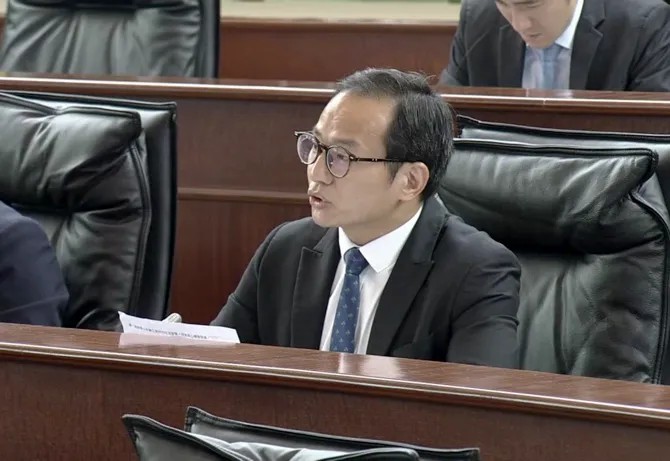
The impacts of excessive use of smartphones by the younger generations were debated at the Legislative Assembly (AL) yesterday.
By the initiative of the lawmaker Leong Sun Iok, the topic was brought to a plenary session solely dedicated to a Q&A between lawmakers and government officials.
In the inquiry, Leong said the excessive use of smartphones by young people is problematic and can result in an addiction that disturbs both their social and educational development.
Although noting that smartphones are considered a vital tool nowadays, Leong said, “Society and those in charge of education pay a lot of attention to the physical and mental health of young people, especially the so-called ‘Cyber-Natives’ who, with the widespread use of smartphones, have formed the habit of not letting go of their cell phones, ignoring the benefits of reading on paper, which has gone digital, and cell phone addiction is a danger to young people’s learning, life and health.”
The lawmaker added that in addition to paying attention and carrying out studies to understand the influences of cell phone addiction on the learning and lives of young people, the government must implement the principle of “giving priority to prevention and importance to education,” defining measures to prevent young people from becoming addicted to their cell phones and having access to harmful information.
The Secretary for Social Affairs and Culture, Elsie Ao Ieong, said the Education and Youth Development Bureau (DSEDJ) is developing leaflets and other forms of communication to teach parents how to control what kind of content their children access via their cell phones, as well as to block certain types of content.
The Secretary also said mobile service operators in Macau can provide paid filtering services that parents can use to prevent their children from accessing unwanted content.
She said the DSEDJ is organizing a series of outdoor activities to boost young peoples’ interest in physical and recreational activities, to restrict the time they use their cell phones.
Lawmaker Leong found the Secretary’s proposals too simple and ineffective noting that “just to create leaflets and information disclosure will not make any difference.”
He said the issue is very serious and can be aggravated in cases where the youngsters not only access “harmful content” but are also targets of threats and bullying.
Leong said the possibility of parents filtering their children’s access to content on the internet should not be a paid service; she wants the government to study the possibility of providing these services free of charge.
Ao Ieong said that if parents suspect their children are at risk of addiction, “they should bring them to a hospital or healthcare center to seek professional advice on whether their children need to receive counseling.”
After the insistence of several lawmakers on the same topic that spread the debate, the Secretary also said the DSEDJ is reviewing the local basic academic curriculum to include topics such as the correct use of the internet in subjects such as Moral and Civic Education as well as general knowledge of Information Technology to increase students’ internet literacy.
She said that when concluded, teaching staff should also attend training courses and receive guidance on how to proceed regarding matters related to the use of the internet.
Several lawmakers, including José Pereira Coutinho, noted that young people are using mobile phones to browse and acquire products and services and so are also subject to being targeted by scams and other problems.
Lawmakers noted that more than restricting or inspecting, the government should provide help to parents to educate their children on the risks of the internet.
